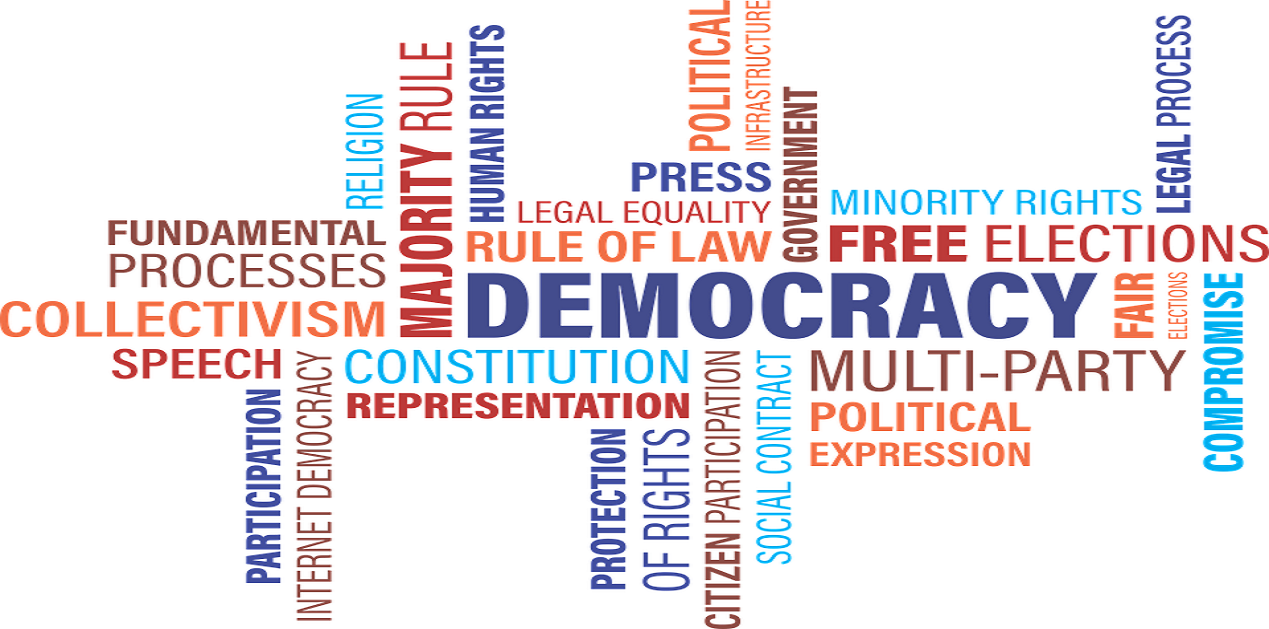The Myanmar military has started its preparations for conducting the next general election in 2023. A pertinent question for the current political crisis is what will be the future of Myanmar’s political system in 2023 and thereafter? Since the military takeover, the opposition forces under the National United Government (NUG) view themselves as an alternative to military rule. Even the EAOs have felt alienated from the political process and have stepped up their efforts at expanding administrative and judicial control. The lack of requisite representation in the political system dominated by the Bamar majority and the slow progress of peace conferences have dwindled EAO’s faith in the National League for Democracy (the ruling party since 2015) and the military. While, on the one hand, the EAOs are demanding a federal structure, the military is for a strong centre. On the other hand, the Arakan Army in the Rakhine State is demanding a confederation.
Questions are being raised about the legitimacy and authority of the National Unity Government and the military. While NUG is being questioned for its acceptability and recognition in the current situation, the military is being questioned for its violent repression and its legitimacy for governance. The third alternative to this is the rise of EAOs, which might eventually lead to a scenario of Myanmar’s Balkanisation.
The country is facing severe economic crises, compounded by COVID-19 and the military coup. The currency has depreciated, and the foreign investments are at their lowest. Unemployment has risen in the country and there are supply-demand mismatches of goods and services. Refugees from Myanmar have increased in neighbouring countries, especially in Thailand and India, and the number of people displaced internally has reached around 1.5 million. The issue of drug trafficking and money laundering has also intensified in these unstable times.
The international sanctions imposed immediately after the military take-over has somehow failed to change the course of the military. The sanction regimes have never really been effective in Myanmar. However, China and Russia continue to deal with the military, and China has gone to the extent of calling the military the legitimate government and the coup as a mere “cabinet reshuffle”. ASEAN, since April 2021, with its Five-Point Consensus, has tried to resolve the issue through negotiations and also appointed a Special Envoy for the purpose. Cambodia has held the chair of ASEAN for 2022, and the Special Envoy visited the country twice to further negotiate with the military and ensure the implementation of the Five-Point Consensus. For 2023, Indonesia will be the chair, and there are renewed hopes for a settlement between all stakeholders. However, the change in the policy of calling a non-political representative of Myanmar to ASEAN meetings has created a rift between ASEAN and the military. On the other hand, India is watching the situation as it does not want to sever ties with either the military or the civilian representatives. The situation in Myanmar is vital for India’s economic and security needs, and therefore the visits by the Foreign Secretary in 2021 and 2022 were significant for addressing India’s border management and security concerns.
In this background, the possible scenario for 2023 is that Myanmar could be heading towards either a fractured democracy or eventually towards Balkanisation. The key drivers shaping this scenario in the following years are military’s capabilities to sustain itself, NUG’s effectiveness and functionality, continuous protests and demonstrations along with increasing attacks on both sides, alienation among Ethnic minorities and the Bamar majority and finally, a worsening economic crisis. However, there are key uncertainties to watch out for in 2023. The military’s repressive and violent tactics like air strikes and executing a number of protestors could lead to its eventual decline as there are increasing defections in the military ranks. Further many countries, especially ASEAN members, are raising their concerns for Myanmar military’s non-conformity to the Five-Point Consensus. There are also fears about whether NUG will stay united in these turbulent times and gain increased legitimacy despite suppression by the military. On the other hand, the strengthening of EAOs could lead to a fractured democracy as many are expanding their administrative and judicial presence in their regions. And finally, there is also uncertainty with regard to the effectiveness of sanctions as countries like the United States, Europe, and Canada which have imposed fresh round of sanctions.
The key indicators to look out for in the year 2023 are the upcoming elections promised by the military, the continued casualties and human rights violations, cases against Daw Aung San Suu Kyi and other important political prisoners, economic and social implications and finally, the international reactions. Here, important partners especially bordering countries, China, Thailand and India, will likely play key roles. In addition, Russia, with its closer ties with Myanmar since the military coup, will be an important area of interest in 2023. The upcoming scenario will have implications for India, as a neighbouring country, as any instability or fractured democracy in the country will impact the northeast region. There is likely to be a further rise in the incidences of the cross-border supply of arms and drugs and influx of refugees to India.
However, one can also predict that the military might eventually postpone the elections to further cement their control. This extended time will also give space for the NUG and the other opposition forces, such as EAOs, to expand their presence. As the NUG is reaching out to international powers and setting up representative offices in some countries, the latest one being in Washington DC, its recognition and presence worldwide will have implications on its legitimacy and acceptability. There is also a possibility that the elections could take place without the participation of either NUG or many EAOs, and the military could take over the governance via its proxy party, USDP. While the military in Myanmar continues to be an important stakeholder, it is also vital that the military takes on board all the other stakeholders to work towards a stable democracy in Myanmar. The year 2023, therefore, will be a very significant due to likely scenarios that might unfold in Myanmar and their impact on South Asia as well as Southeast Asia.
(The paper is the author’s individual scholastic articulation. The author certifies that the article/paper is original in content, unpublished and it has not been submitted for publication/web upload elsewhere, and that the facts and figures quoted are duly referenced, as needed, and are believed to be correct). (The paper does not necessarily represent the organisational stance... More >>
Image Source: https://www.maxpixel.net/static/photo/1x/Religion-Freedom-Press-Democracy-Speech-Word-Cloud-3269303.png











Post new comment